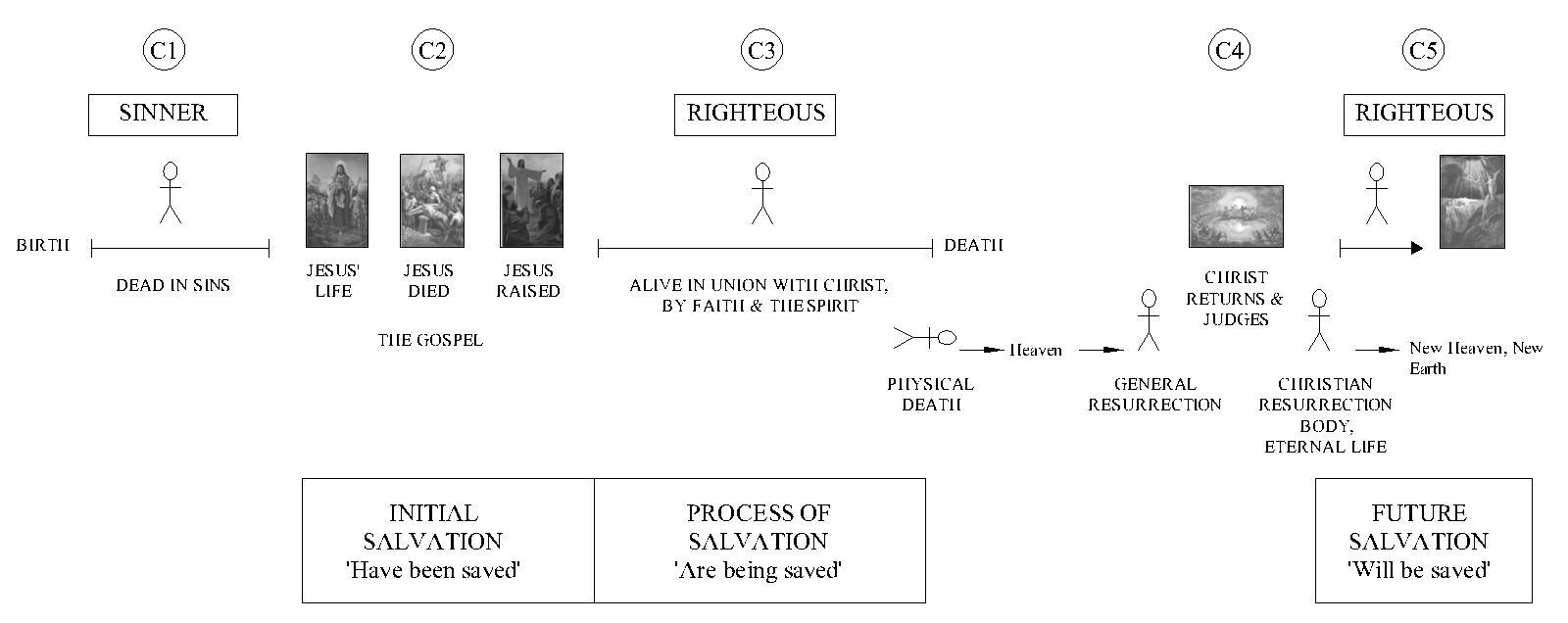
- Link: Amazon
- Length: 277
- Difficulty: Medium-Academic
- Topic: Theology, Salvation
- Audience: Ministers, Lay-Leaders, Educated Christians
- Published: 1988
Hoekema is a reformed theologian and this book will walk it’s readers through a number of concepts associated with salvation. In particular it gives a broad coverage of what happens when a person is initially saved.
I read the book as part of my research for my page on Future Judgment and Salvation.
Overall I found it helpful to learn about key verses associated with salvation and how they are used in various positions. The book is getting a bit dated now, but I think because it gives a good coverage of a variety of topics I’d recommend it for reading for those researching the topic.
This post is one of my book reviews.
Contents
- Orientation
- The Question of the “Order of Salvation”
- The Role of the Holy Spirit
- Union With Christ
- The Gospel Call
- Effectual Calling
- Regeneration
- Conversion
- Repentance
- Faith
- Justification
- Sanctification
- The Perseverance of True Believers
Main points
As I mentioned above, Hoekema’s book walks us through a fair number of soteriological concepts most of which are associated with initial salvation. Though there are exceptions. He rightly refers to repentance as something believers ought to do for their whole lives. He talks a bit about progressive sanctification and at the end he discusses the perseverance of the Saints.
Most of his theology is framed from a reformed perspective assuming concepts such as sinless perfection, total depravity, the soterian gospel and justification. He often evaluates several positions within the wider reformed camp.
Each of the topics mentioned in the contents are considered in detail and generally they included discussion with significant debates. For example Heokema considers the validity of ‘carnal’ Christians, holiness and perfection movements, the Roman Catholic doctrine of justification and whether or not believers can fall away.
When I started reading the book I immediately warmed to it because Heokema approaches salvation from an academic point of view. That is, he makes known various interpretations and was willing to weigh them all up against his understanding of scripture.
Hoekema starts the book with a great discussion on the ordo salutis. The order of salvation. I found this quite helpful learning about different positions within the reformed camp. I found Hoekema’s position on this quite convincing.
Over the course of the book however I found his treatments increasingly selective and biased towards the reformed positions. I found his use of scripture was often selective, ignoring passages that could be used to support alternative positions. One such example would be ignoring Rom 5.19; 6.7 and 1 Cor 6.11 when talking about justification. Another would be his treatment of apostasy. Hoekema does not spend any time weighing up the two positions. He assumes the traditional position outright and argues from this starting point.

Hoekema pays little to no attention to distinctions in salvation. By that I mean initial salvation (have been saved), the process of salvation (being saved) and the consummation of salvation (will be saved). Likewise he does not consider the future Judgment according to works or its relationship to justification by faith. These are quite blaring omissions considering the book is on salvation.
Hoekema does not interact with the new perspective. Perhaps it was too new.
Recommendation
Overall I found the book fairly readable. Although to be honest I did a bit of skim reading. The content was not overly academic, I didn’t find it to hard to understand.
Hoekema is a reformed theologian, so be aware he won’t go out of his way to challenge traditional protestant positions. His use of scripture is quite selective at points.
A good thing about this book is that it will walk it’s readers through a number of concepts associated with salvation. In particular it gives a broad coverage of what happens when a person is initially saved.
The book is getting a bit dated now, but I think because it gives a good coverage of a variety of topics I’d recommend it for reading for those researching the topic.
Copyright © Joshua Washington and thescripturesays, 2017. All Rights Reserved.





